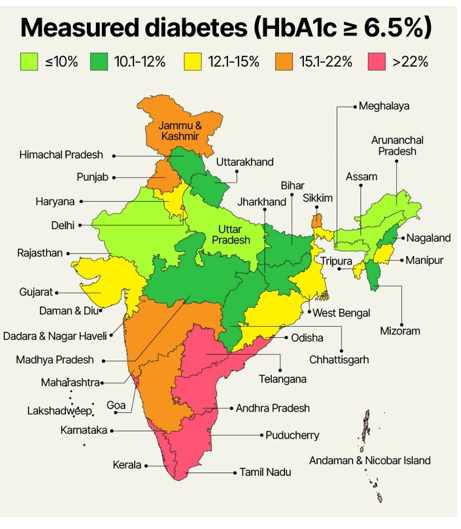You're all caught up—no notifications available.
Explore All Exams at KGS

All Exams
Explore All Exams at KGS
Khan Sir Courses
Geography I Polity I History | World Map I Indian Map I Economics I Biology
UPSC & State PSC
UPSC I BPSC I UP-PSC I MP-PSC
State Exams
UP I Bihar I MP | Rajasthan
NEET | JEE | CUET | Boards
NEET | JEE | CUET | Boards
Defence Exams
NDA I CDS I CAPF I AFCAT I SSB I Agniveer
Police Exams
UP SI | Bihar SI | Delhi Police | UP Constable
SSC Exams
CGL I CPO I CHSL I MTS I SSC GD I Delhi Police
Foundation Courses
Physics I Chemistry I Biology I History I Geography I Polity I NCERT I Math I English | Map I Reasoning
Railway Exams
RRB | RPF
Teaching Exams
TET | Teaching | UGC
Banking Exams
SBI | RBI | IBPS
Engineering Exams
Civil | Electrical | Mechanical
UGC NET
UGC NET/JRF
Current Affairs provides you with the best compilation of the Daily Current Affairs taking place across the globe: National, International, Sports, Science and Technology, Banking, Economy, Agreement, Appointments, Ranks, and Report and General Studies

SYLLABUS
GS-1: Issues relating to development and management of Social Sector/Services relating to Health.
Context:
Recently, a study published in the Lancet Global Health journal reveals that at least 1 in 5 people aged 45 and older in India had diabetes in 2019.
About Longitudinal Aging Study
The study, published in The Lancet Global Health, is based on data from the Longitudinal Aging Study in India (LASI), which surveyed nearly 60,000 adults aged 45+ between 2017–2019 to estimate the prevalence, awareness, treatment and control of diabetes.
LASI is nationally and state-level representative, covering health conditions like BMI, hypertension, and diabetes.
Blood samples were tested for HbA1c (an integrated measure of diabetes over the previous 90 days) levels in a lab (ICMR-NITVAR, Pune), a more accurate method than random glucose testing.
Key Findings of the Study
Prevalence: In 2019, one in five Indians aged 45 years and above had diabetes, with prevalence rates of 19.6 percent in men and 20.1 percent in women.
The condition affected around 30 percent of the urban population, which was twice the rural rate of 15 percent.
Awareness: About 60 percent of people with diabetes are aware of their condition. Among the elderly aged 60 years and above, 8 percent have undiagnosed diabetes that is an estimated 20 million Indians were living with undiagnosed diabetes.
Treatment & Control: Among those aware of their condition, 94 percent received treatment, yet only 36 percent are adequately treated, while 5 percent remain untreated and 47 percent are under-treatment.

State-Level Trends
Highest age-adjusted prevalence (45+):
Maximum number of cases:
Geographic Distribution: Southern states generally have higher rates; central and northeastern states have lower rates.
Diabetes
Diabetes is a chronic, metabolic disease characterized by elevated levels of blood glucose (blood sugar), which over time leads to serious damage to the heart, blood vessels, eyes, kidneys, and nerves.
It occurs either when the pancreas does not produce enough insulin or when the body cannot effectively use the insulin it produces.
Types of Diabetes: There are several types of diabetes. The most common forms include:
Type 1 Diabetes
Type 2 Diabetes
Gestational Diabetes
Key Symptoms of Diabetes
Common symptoms include:

Source:

NCERT Books
Resources
We love learning. Through our innovative solutions, we encourage ourselves, our teams, and our Students to grow. We welcome and look for diverse perspectives and opinions because they enhance our decisions. We strive to understand the big picture and how we contribute to the company’s objectives. We approach challenges with optimism and harness the power of teamwork to accomplish our goals. These aren’t just pretty words to post on the office wall. This is who we are. It’s how we work. And it’s how we approach every interaction with each other and our Students.
Come with an open mind, hungry to learn, and you’ll experience unmatched personal and professional growth, a world of different backgrounds and perspectives, and the freedom to be you—every day. We strive to build and sustain diverse teams and foster a culture of belonging. Creating an inclusive environment where every students feels welcome, appreciated, and heard gives us something to feel (really) good about.
Get Free academic Counseling & Course Details
